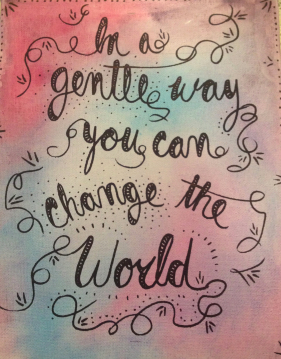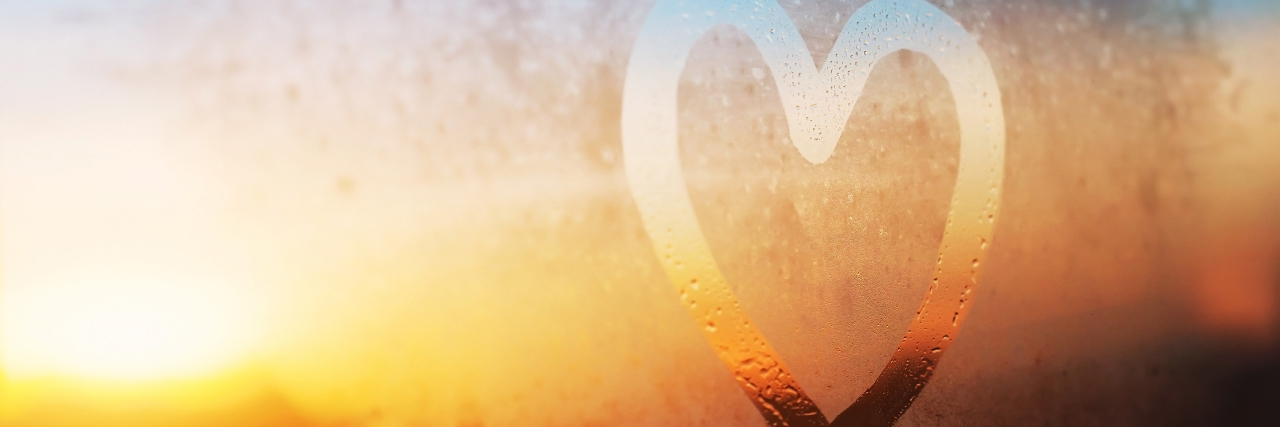It is a commonly held notion patients will only give feedback when care is either very bad or very good. Those who have ordinary experiences do not usually take the time to write a letter or fill out a comment card.
I’d like to commit to speaking up when things go well, as well as when they go poorly. Here’s my story of a perfectly ordinary appointment.
Today I had time booked with a radiation oncologist at the cancer center. I think appointments with oncologists strike fear into most people. It must be a strange job to be an oncologist and have people show up in your office terrified to see you.
This was my first time back at the cancer center since my last day of treatment. On the drive there, I was an anxious mess. I drove as fast as I could in bumper-to-bumper Vancouver traffic and loudly played a Tragically Hip live album on the car stereo to give me some moxie.
“Courage, my word.
It didn’t come, it doesn’t matter.
Courage, it couldn’t come at a worse time.”
My regular radiation oncologist was on vacation, so I was booked into see someone new. I woke up this morning awash with anxiety thinking about this new doctor. What if he wasn’t kind? And yet another new person looking at my poor boob and this time, a man to boot. Great. I might as well be marching through the cancer center with no shirt on with the amount of dignity I have left.
I had to go to the appointment by myself, as my husband had to remain at home to look after our son. Being alone never helps my monkey brain either.
I eyed my bottle of sedatives before I left. Isn’t it ironic that the main reason I pop anti-anxiety pills is when I have an appointment at the hospital? I decided instead of taking a pill to park a few blocks away from the cancer center and walk to see if the trek would help settle me down. It did.
I hiked through the leafy residential neighborhoods, grabbed an iced coffee and snuck in the back through the parkade elevator. The sight of all the people with cancer waiting in the lobby always makes me sad. In fact, the whole building makes me sad.
It isn’t my favorite place to go.
I dutifully checked in with the receptionist, who was pleasant enough, and sat down for about three minutes before my name was called. I have to say the radiation folks are all very efficient — there’s very little waiting in that department.
The nurse (I think) who fetched me asked how I was doing. She didn’t share her name or her role and I didn’t have the energy to ask. We chatted a bit about burned boobs and fatigue and she left me alone in the room to change into a gown. The radiation oncologist knocked and came in a few minutes later.
He was a young physician with a gentle manner. He introduced himself and shook my hand. He sat down in the chair while I was perched on the treatment table. I knew this was my last radiation oncology appointment, so I had my notebook with my list of questions for him.
In total, he spent almost half an hour with me. He never appeared rushed or glanced at the clock. He was both professional and friendly. He smiled and made eye contact. Except for my physical exam, he remained seated and clearly answered all my questions.
It reminded me how important communication is for physicians. It must be challenging to read a patient when they first meet them to figure out how to talk to them like they aren’t unintelligent, but in a way they understand. Translating recurrence rates, statistics and risk factors into layperson terms takes talent and skill.
He wasn’t rushed and didn’t seem to try to be wrapping the appointment up in any way. I never felt as if I was intruding on his time. He was there for me for the entire half an hour. He said a number of times, “If you ever want to come back and see us, just give us a call.” He shook my hand again when he got up to leave.
I walked back to my car feeling calm and relaxed. I felt as if I was taken care of, mostly because of how this young physician behaved and not what he did. His friendly, calm, unrushed manner turned what could have been a stressful and upsetting oncology appointment into a perfectly fine oncology appointment.
I assert the so-called bedside manner matters a lot. While our interaction might have been just an ordinary appointment, it meant much more than that to me. I’ve said it before but it bears repeating: It is these little things — a handshake, a smile, patience, eye contact, a calm manner — that mean a lot to us vulnerable, broken patients, every single time.
Medicine might cure (sometimes), but it doesn’t always heal. This oncologist was not only a specialist, smart and brimming with lots of medical knowledge, but he was also a healer, too. And right now, I mostly need to heal.

Cheers to all the healers out there who comfort and alleviate suffering just by holding space for their patients. Holding space is the ultimate demonstration of respect for patients. I strongly believe it is these gentle hearts who will help us heal in the end.
This post was originally published on SueRobins.com.
Thinkstock photo by anyaberkut

